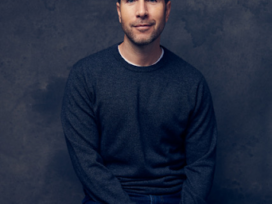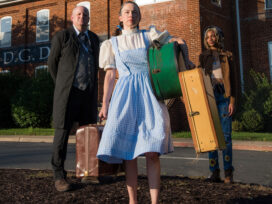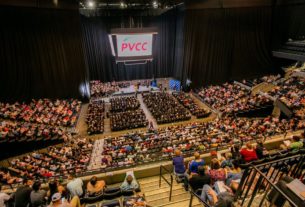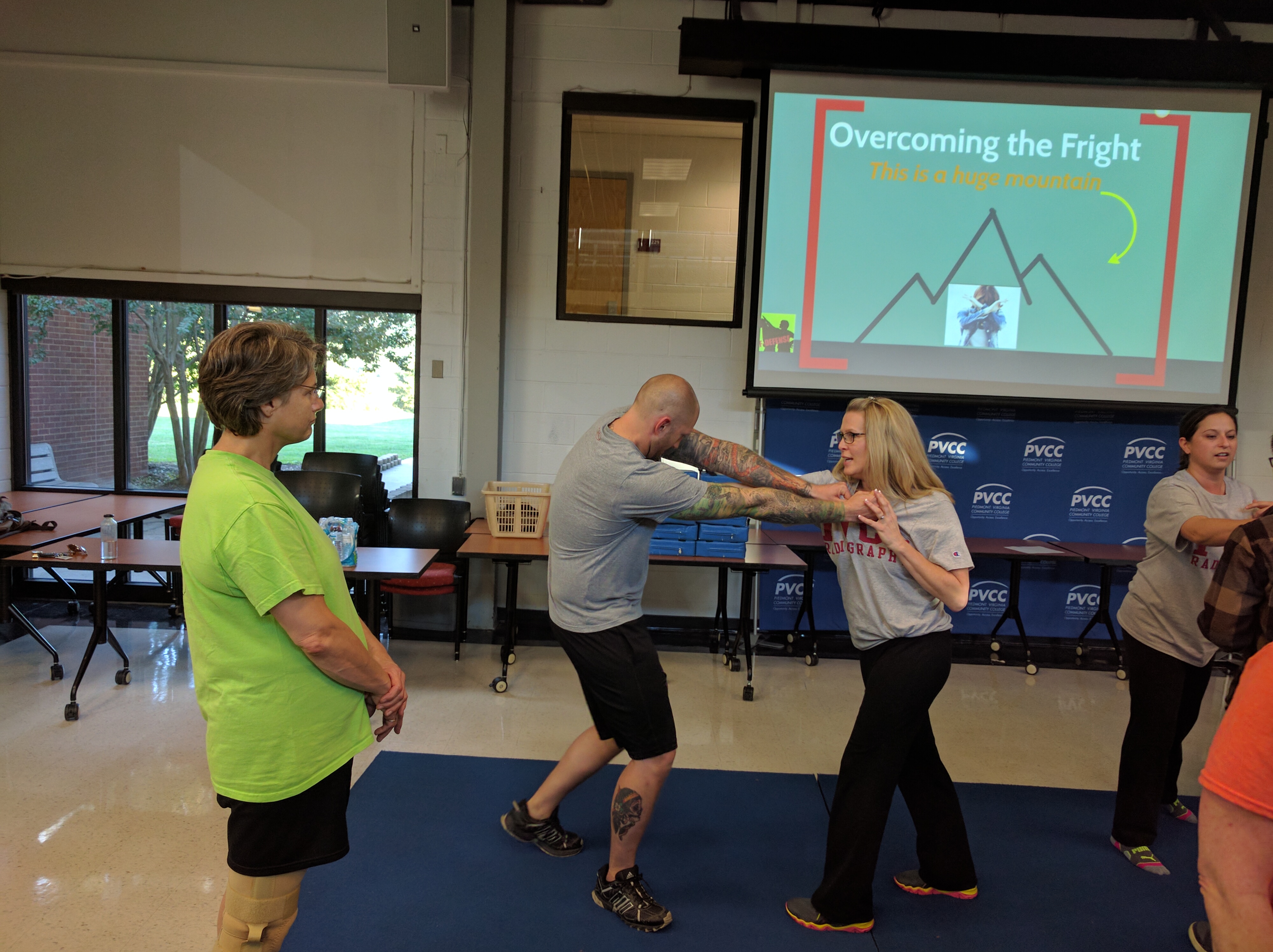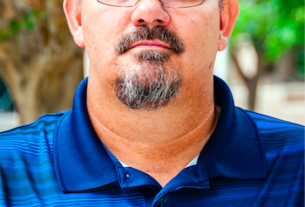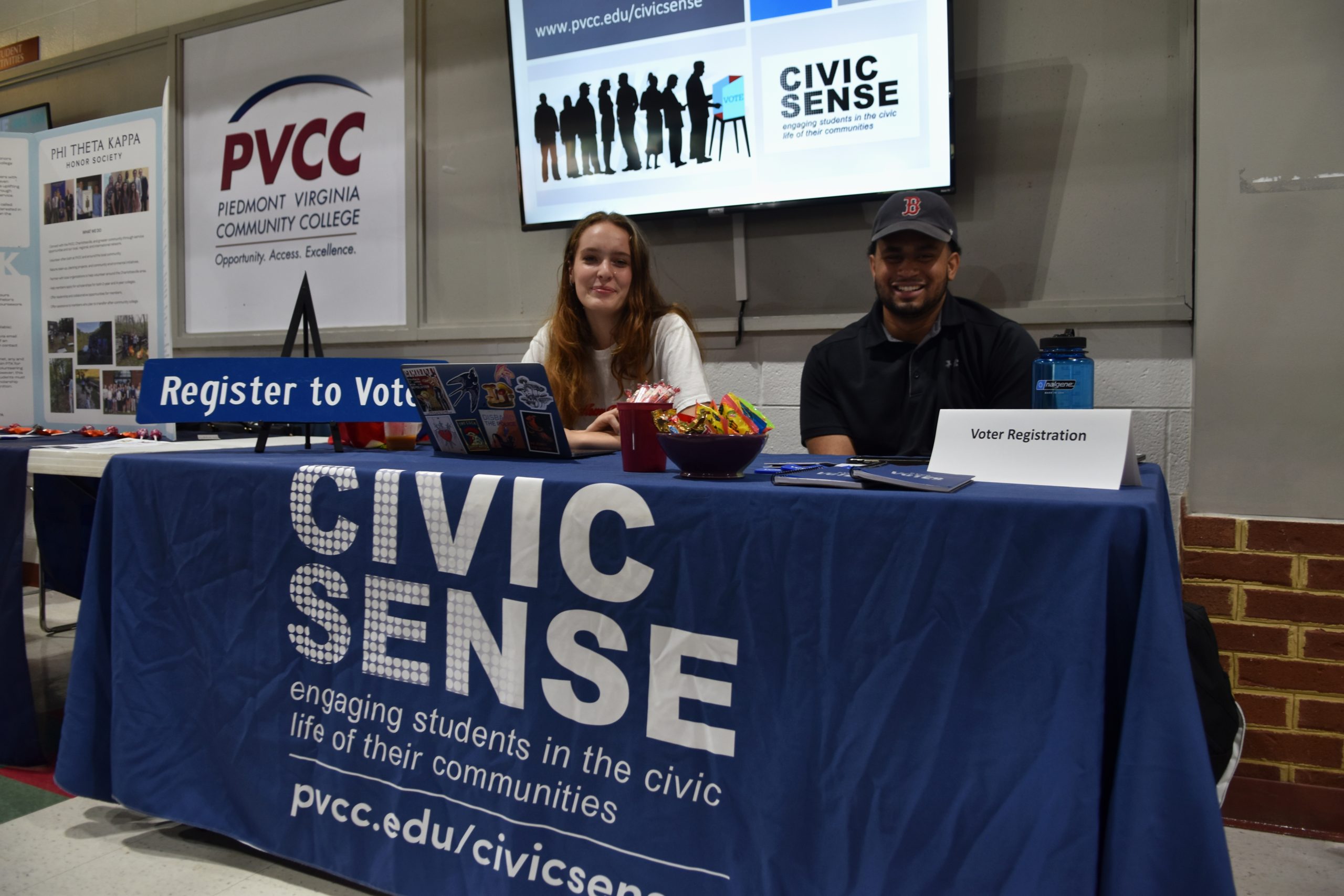
Campus Programs Work to Encourage Civically Engaged Student Body
It’s election season, and a group of PVCC students and faculty work tirelessly to help get out the vote on campus.
Assistant Professor of Political Science Connie Jorgensen is the director of the Quality Enhancement Plan, also known as the civic engagement program. Civic engagement on campus has only grown since she began directing it.
One of the program’s main goals is to increase votership on campus. Jorgensen works with the Campus Voter Project, a non-partisan student voter organization, to employ two “democracy fellows” who help run programs to encourage voting.
“We have an election every year in Virginia, so there’s always voter registration and ‘get out the vote’ work to do. We do a non-partisan voter guide every year,” Jorgensen said.
Jorgensen sees civic engagement as a way to connect students with tangible change in their communities.
“I would like to see us get more involved in local politics; local politics is really where the rubber hits the road. I care deeply about whether my trash is picked up every day. [For] Joe Biden, it’s not on his radar, but my city counselor can make sure my trash gets picked up. That affects my day-to-day quality of life, and voter turnout during local elections is dismal,” Jorgensen said, “What’s happening here is we are letting a very small percentage of local citizens determine what happens in our communities because fewer people vote in local elections. If you really want to make a difference in your community, and you wanna run for office, starting at the local level [is] where you’re actually going to see change.”
Civic engagement courses are also offered at PVCC, with almost every program requiring one to graduate. Jorgensen explained, “the point of this is to help connect students’ majors with public policy.”
“Education majors, when they get out in the world, they’re going to be phenomenally affected by government,” Jorgensen said. “One civic engagement assignment was to look at the difference between local control of education and state and national control of education, and that kinda … makes you understand how you fit in the broader civic world.”
One other event Jorgensen helps coordinate is the campus Deliberative Dialogues, discussion forums hosted to help students understand different perspectives on issues. Jorgensen explained that in the mindset of traditional debates, there is a winner and a loser, which she contrasted from Deliberative Dialogues, saying, “A dialogue isn’t like that – there’s no pressure to solve the problem, or to win. And so we use the issue guides that come from the National Issues Forum Institute that offer three possible solutions, and in each solution you’ve got several pros and cons.” These topic guides were built to be conducive to healthy discussion in small groups led by trained facilitators, with Jorgensen saying, “It’s a safe place to have these discussions. Last year we trained a bunch of people to be facilitators, and the students really like it.”
Jorgensen connected this to the broader goal of civic engagement and a positive school climate, explaining, “You learn that you can actually have a civil conversation without someone yelling at you or calling you names or saying you’re wrong, and to me, changing that mindset that we always have to win – we can’t discuss an issue – is something we really need to change in this country.”
Jorgensen says, “I want people to respect my opinion, that means I have an obligation to respect somebody else’s opinion who disagrees with me. If I want respect, I have to show respect. And deliberative dialogue is a way to kind of relearn that dialogue in the public space.”
Jorgensen underlines her goal with civic engagement, “If we are going to make progress, if we are going to ‘save democracy,’ we’re going to have to find a way to be civil to one another.”


